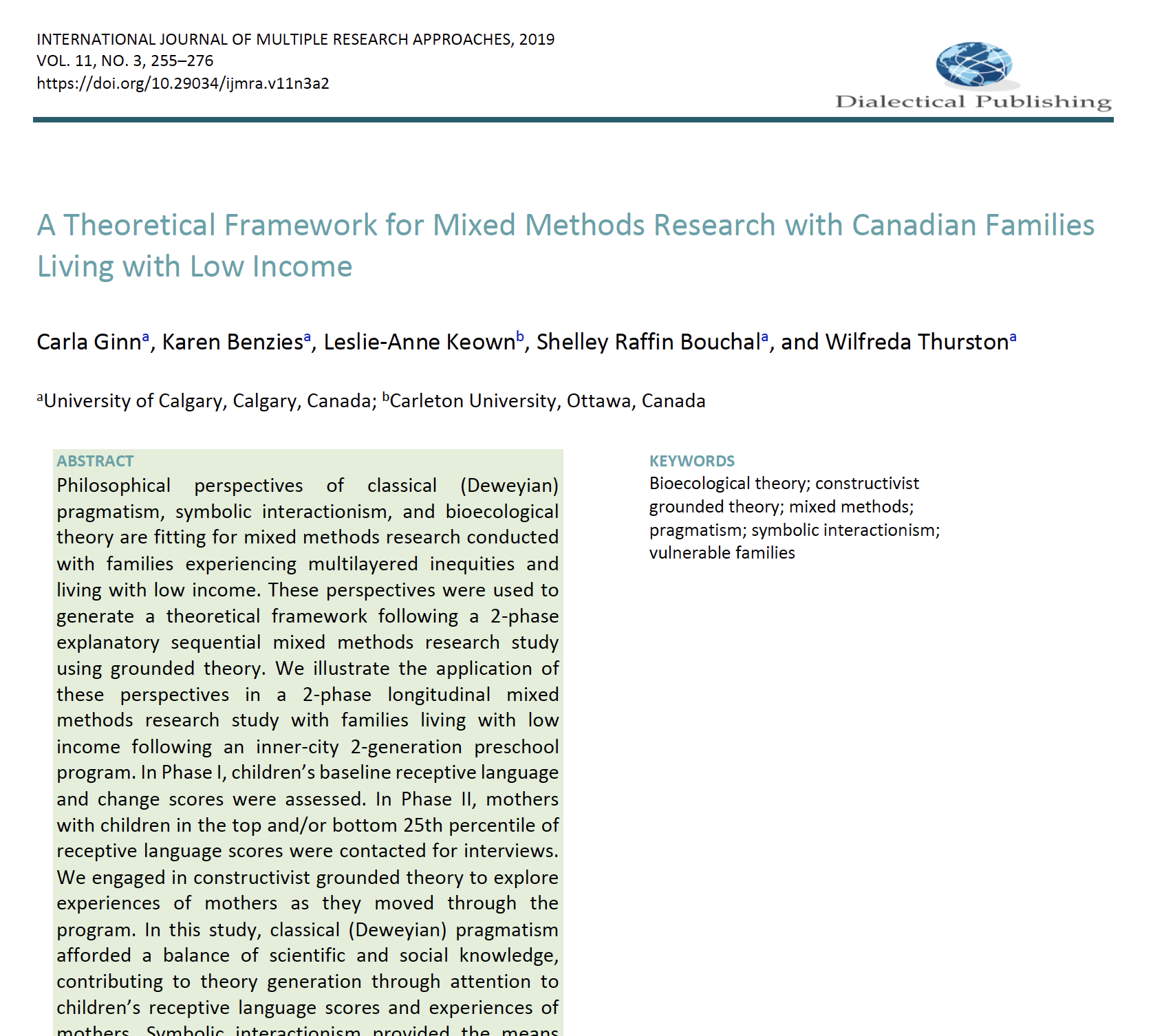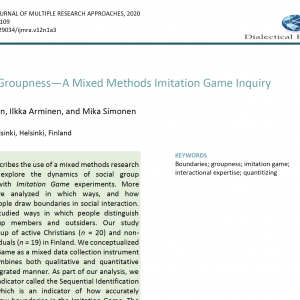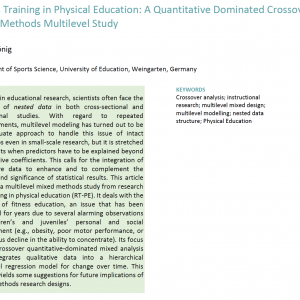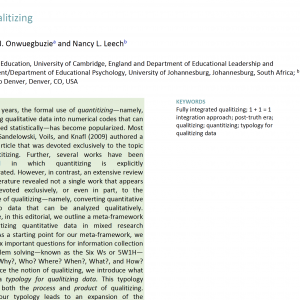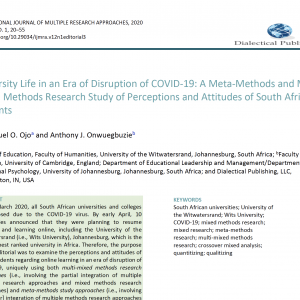11(3). 04. A Theoretical Framework for Mixed Methods Research with Canadian Families Living with Low Income
$30.00
Description
Author
Carla Ginn (University of Calgary, Calgary, Canada)
Karen Benzies (University of Calgary, Calgary, Canada)
Leslie-Anne Keown (Carleton University, Ottawa, Canada)
Shelley Raffin Bouchal (University of Calgary, Calgary, Canada)
Wilfreda Thurston (University of Calgary, Calgary, Canada)
Abstract
Philosophical perspectives of classical (Deweyian) pragmatism, symbolic interactionism, and bioecological theory are fitting for mixed methods research conducted with families experiencing multilayered inequities and living with low income. These perspectives were used to generate a theoretical framework following a 2-phase explanatory sequential mixed methods research study using grounded theory. We illustrate the application of these perspectives in a 2-phase longitudinal mixed methods research study with families living with low income following an inner-city 2-generation preschool program. In Phase I, children’s baseline receptive language and change scores were assessed. In Phase II, mothers with children in the top and/or bottom 25th percentile of receptive language scores were contacted for interviews. We engaged in constructivist grounded theory to explore experiences of mothers as they moved through the program. In this study, classical (Deweyian) pragmatism afforded a balance of scientific and social knowledge, contributing to theory generation through attention to children’s receptive language scores and experiences of mothers. Symbolic interactionism provided the means through which to understand participant reality, and bioecological theory emphasized human development in relation to environment. These perspectives yielded a theory, Stepping Stones to Resiliency, that can provide a reminder of our shared humanness, and that movement toward resiliency is not without struggle. Stepping Stones to Resiliency might be used as a theoretical framework when engaging in research with families living with low income.
